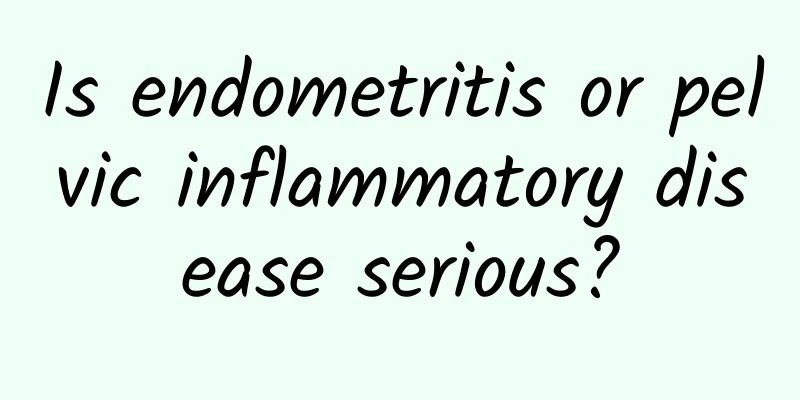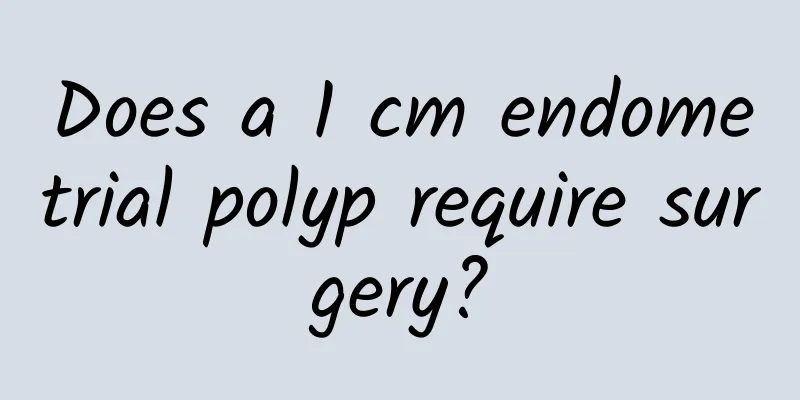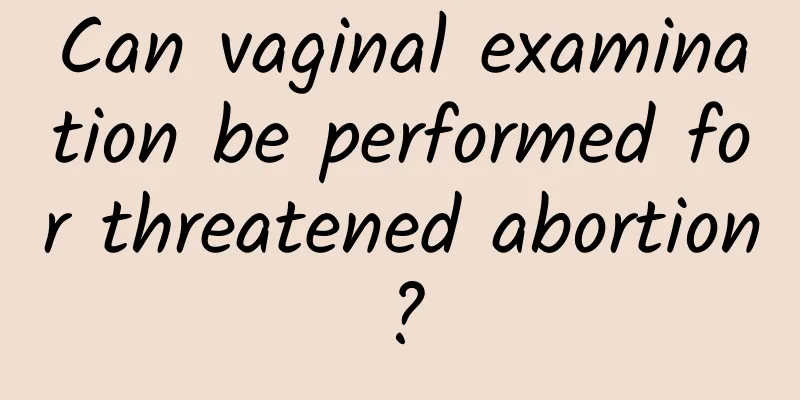Is endometritis or pelvic inflammatory disease serious?

|
In severe cases, endometritis and pelvic inflammatory disease may lead to infertility, chronic pain and even life-threatening conditions, but early detection and early treatment usually result in a good prognosis. The causes of these two diseases include infection, surgery, childbirth, etc. Treatment methods include antibiotics, surgery and lifestyle adjustments depending on the severity of the disease. 1. Analysis of the causes of the disease The main cause of endometritis and pelvic inflammatory disease is infection, and common pathogens include Neisseria gonorrhoeae, Chlamydia trachomatis, and other anaerobic bacteria. Genetic factors: Women in the family have a slightly higher risk of suffering from chronic gynecological inflammation, but such diseases are mainly caused by external factors. External factors: unclean sexual life, non-compliant abortion surgery, unhygienic menstrual hygiene habits, etc. are the main causes. In particular, the repeated use of intrauterine devices such as intrauterine contraceptive devices will also increase the risk of infection. Physiological factors: When a woman's immune system is weakened, germs are more likely to invade. Long-term stress or fatigue may also reduce immunity and increase the probability of disease. Pathological factors: In addition to bacterial infection, mycoplasma, chlamydia and certain viruses may also be the culprits of the disease. Failure to treat it in time may cause more serious complications, such as fallopian tube adhesions, abdominal abscesses, etc. 2 Detailed explanation of coping methods Drug treatment: Mild patients are usually treated with antibiotics, including: Broad-spectrum antibiotics such as ceftriaxone are targeted to cover a wide range of pathogens; azithromycin for chlamydia infection; Metronidazole for anaerobic infections. Antibiotics should be used strictly according to the doctor's instructions to avoid stopping the medication on your own which may lead to drug resistance. Surgery: For patients with severe or recurrent cases, if there are serious conditions such as abscesses and fallopian tube blockage, surgical treatment is required. For example: Laparoscopic surgery to drain pelvic abscesses; Uterine curettage to remove infected tissue; Severe infections may require removal of tissue if they spread. Lifestyle adjustments and adjunctive treatments: Maintain good personal hygiene, especially during menstruation and postpartum care; Avoid sitting for long periods of time and choose light foods rich in vitamins, such as broccoli, sweet potatoes, etc.; Stick to some exercise to boost your immunity, such as yoga or brisk walking. If endometritis and pelvic inflammatory disease are not treated in time, they may cause long-term problems such as infertility, ectopic pregnancy or chronic pelvic pain. Women should pay attention to health and reliable medical care in their daily lives. If they find early symptoms, such as lower abdominal pain or abnormal vaginal discharge, they should seek medical treatment as soon as possible. |
<<: Pelvic effusion and abnormal vaginal discharge
>>: What medicine should I take for the main symptoms of kidney yin deficiency?
Recommend
Clinical manifestations of congenital absence of vagina
When you suffer from congenital vaginal absence i...
Is the cost of treating uterine effusion high?
Uterine effusion is a very common gynecological d...
Cost of artificial abortion
Nowadays, more and more female friends are gettin...
3 dietary treatments available for patients after abortion
Abortion is very harmful to women's physical ...
A simple core warm-up to run beautifully without shaking belly
Road running is so popular! Now it has become a n...
Women suffer from cervical erosion
What are the causes of cervical erosion in women?...
How long does it take for cervical warts to heal?
The treatment and recovery time of cervical warts...
The treatment of ovarian cysts should be based on the actual situation of the patient
For women who want to give birth, ovarian cysts c...
What are the dangers of pregnancy with uterine fibroids? Will pregnancy with uterine fibroids have adverse effects on fertility?
Pregnancy with uterine fibroids has adverse effec...
Multiple sexual partners caused her to suffer from pelvic inflammatory disease
Lily is a beautiful girl, but she doesn't lik...
Can Bartholin's gland cyst be cured by taking Chinese medicine?
Traditional Chinese medicine may have a certain a...
Abdominal pain and excessive vaginal discharge after missing menstruation
If menstruation is not coming and accompanied by ...
Can adnexitis be left untreated?
Can adnexitis be left untreated? 1. Adnexitis gen...
How to treat postpartum vaginitis?
How to treat postpartum vaginitis? Postpartum vag...
When does adenomyosis require surgery?
Adenomyosis is caused by the invasion of endometr...









